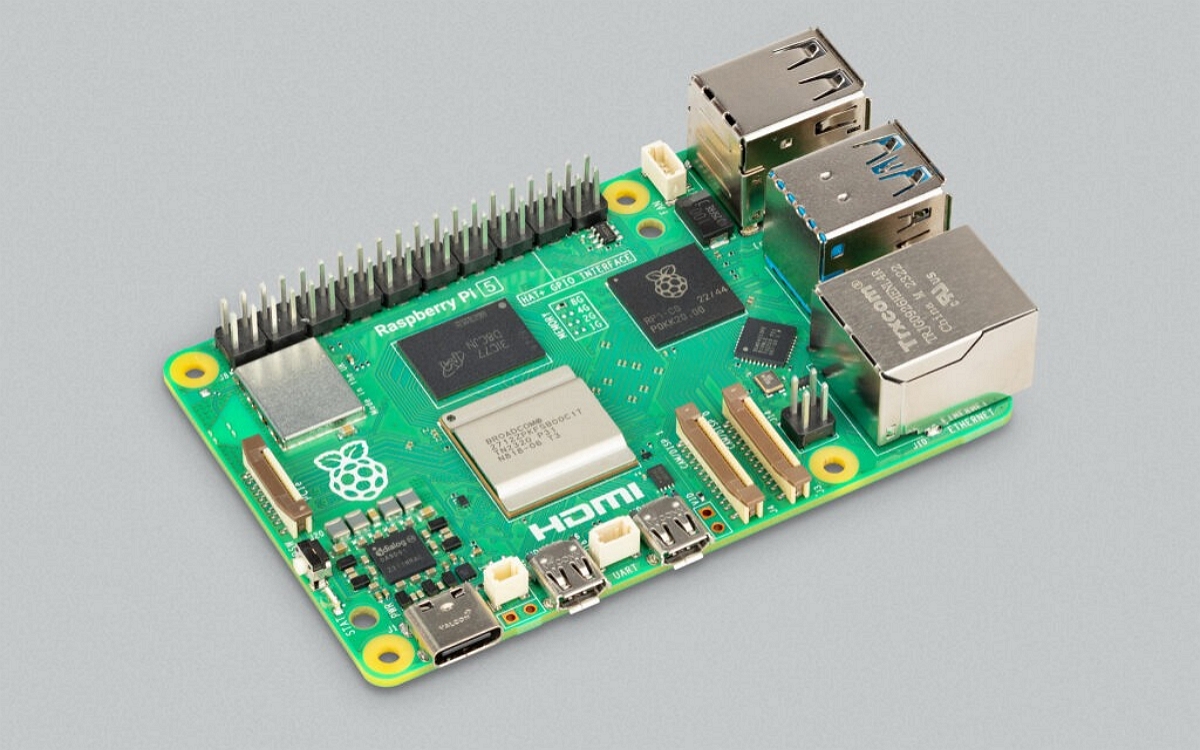The Raspberry Pi 5 is much more powerful than the previous generation, if we are to believe the first benchmarks of the new nanocomputer. However, its price has not increased drastically.
A few days ago, the Raspberry Pi team launched the Raspberry Pi 5, a new generation of its nanocomputers. We had to wait no less than 4 years after the release of the Raspberry Pi 4 to discover this new iteration, in particular because of global shortages of semiconductors.
The Raspberry PI 5 stands out above all from its predecessors thanks to an in-house Boardcom BCM2712 chip, a chipset with four ARM Cortex-A76 CPU cores clocked at 2.4 GHz and a VideoCore VII GPU clocked at 800 MHz. According to Raspberry Pi’s statements, it would be almost twice as powerful as the previous generation, and this is indeed what the first benchmarks have just confirmed.
The Raspberry Pi 5 is almost twice as powerful as the Raspberry Pi 4
According to Tom’s Hardware, which has already tested the nanocomputer, the Raspberry Pi 5 is significantly faster than the Pi 4. It starts faster, opens applications faster and performs better in benchmarks. For example, it opens applications in half the time, starts in 18 seconds instead of 38, and is 2 to 3 times better performance in CPU and compression tasks. In an artificial intelligence test, it was 68% faster.
The Pi 5 excels at tasks like compression and decompression. It offers 9,543 MIPS of compression power, a huge jump from the Pi 4’s 4,287 MIPS, an increase of 122%. In terms of decompression, the Pi 5 achieves 13,231 MIPS, while the Pi 4 lags behind with 7,568 MIPS.
The processor is not the only component to be faster, the Raspberry Pi 5 also offers an improved memory card reader and faster USB 3.0 speeds. The new model managed to read a Kingston Canvas Go Plus microSD card at a rate of 12.75 MB/s and wrote at a rate of 8.5 MB/s, compared to 8.78 MB/s and 5.85 MB/s. s for model 4.
When connected to an SSD via USB 3.0, the Pi 5 achieves impressive read speeds of 31.33 MB/s and write speeds of 20.89 MB/s. For its part, the Raspberry Pi 4 achieves comparatively slower read speeds of 12.96 MB/s and write speeds of 8.64 MB/s when connected to the same SSD via USB 3.0.
